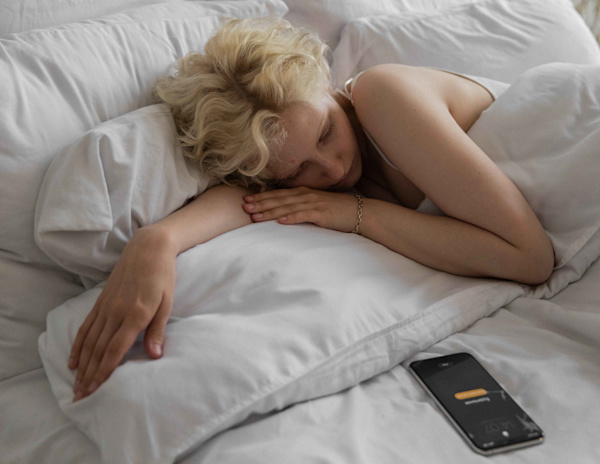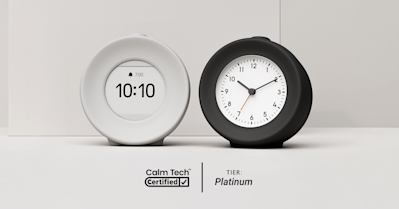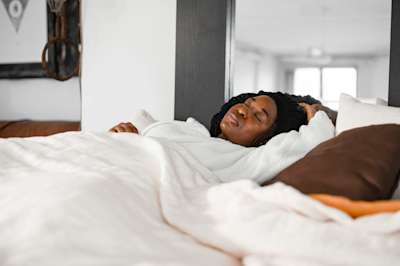
Sleep tracking apps and their impact on sleep hygiene
Double-edged sword?
As technology continues to permeate every aspect of our daily lives, many individuals are turning to sleep tracking apps as an answer to nocturnal dilemmas and sleep issues. They offer promising features, implying that they have the ability to map out sleep cycles, offer sleep improvement tips, and provide relaxation techniques, all with the aim of enhancing sleep hygiene. However, how effective are they really? Additionally, could their use inadvertently lead to more harm than good?
Unlocking Sleep Patterns with Sleep Tracking
Sleep tracking apps are digital tools which leverage technology to record and analyze your sleep. They track various metrics such as the time spent in different sleep stages (light, deep, and REM sleep), the number of wake-ups during the night, and total sleep duration. This information can be somewhat useful in pinpointing irregular patterns or issues, like insomnia or sleep apnea, which could be interfering with our quality of sleep. Such insight can potentially lead to targeted solutions which improve sleep health. For instance, noticing a high frequency of night-time awakenings might prompt us to address potential disruptions in our sleep environment.
Steering Sleep Improvement with Personalized Tips
Another appealing feature of sleep apps is their ability to offer personalized sleep improvement tips. They may advise on consistent bedtimes and wake-up times, remind you to avoid caffeine or screen time before bed, or even propose relaxation exercises. These recommendations are rooted in principles of good sleep hygiene and have the potential to drastically improve your sleep quality. Consistency in sleep schedules, for example, helps regulate your internal body clock and can result in more restful sleep.
Promoting Relaxation Techniques for Better Sleep
To aid the transition into sleep, some apps provide resources like guided meditations, sleep stories, and ambient sounds. These features aim to relax the mind, reduce stress, and create a sleep-friendly environment. According to researchers at Brighton and Sussex Medical School (BSMS), nature sounds have a more relaxing effect on our nervous system than artificial sounds, which can improve sleep quality and mood.[1]
READ: Nature Sounds & Their Role in Relaxation
Regulating Sleep Schedules
Many sleep apps can also help in maintaining regular sleep schedules, which is a key factor for good sleep hygiene. Regular reminders to wind down and get ready for bed can instill discipline in your sleep schedule, reducing the chances of sleep deprivation.
However, despite these promising features, it's important to be aware of potential drawbacks.
Screen Time: A Sleep Disruptor
Sleep apps necessitate screen time, which can be counterproductive if it's too close to bedtime. The blue light emitted by screens can suppress the production of melatonin, the hormone that regulates your sleep-wake cycle. This could delay sleep onset, disrupt your sleep architecture, and leave you feeling groggy the next day.
The Anxiety Paradox
Sleep apps aim to reduce sleep-related stress, but the constant monitoring and analysis can lead to an increase in anxiety and stress. This phenomenon, known as orthosomnia, is the obsession with achieving perfect sleep. The constant vigilance and concern about not getting enough quality sleep can ironically lead to more sleep problems. In fact, one of the leading causes of insomnia is anxiety centered around sleep. [2]
READ: What Causes Insomnia & How To Treat It
Accuracy Matters
The accuracy of data generated by sleep apps should also be questioned. Without the use of specialized equipment, like in a sleep lab, it's challenging for an app to accurately determine your sleep stages. Misinterpreted or inaccurate data can create unnecessary worry and may lead to unhelpful changes in your sleep habits.
The Risk of Over-reliance
There's a risk of becoming overly dependent on sleep apps. This could be problematic if you lose access to the app or if the app's recommendations are not beneficial for your unique sleep needs. It's crucial to remember that while these apps can offer guidance, they cannot replace professional medical advice.
Privacy Concerns
One additional critical aspect which often goes unnoticed when using sleep tracking apps is the issue of privacy. These apps collect an immense amount of personal and sensitive data as they monitor your sleep patterns. This might include not just when and how you sleep, but also other related health information. It's important to be aware where this data goes. Is it stored securely? Who has access to it? Unfortunately, not all sleep tracking apps maintain stringent data privacy standards. Some may share data with third parties for various purposes, including advertising. It's crucial to thoroughly review the privacy policy of any sleep app you choose to use. Ensure that you're comfortable with how your data is collected, stored, and shared. Remember, your personal health information is valuable, and it's your right to protect it.
Bottom Line
As the popularity of sleep apps continues to soar, it's essential to use them mindfully. While they might offer valuable insights and recommendations for improving sleep hygiene, they are not without their pitfalls. Overreliance or misinterpretation of their data can increase stress and anxiety, ironically leading to poorer sleep.
For those seeking a gentler, more mindful approach to sleep hygiene, consider a tool like mindful alarm clock, Mudita Harmony. This unique device promotes healthy sleep habits without the need for constant monitoring or potential misinformation. Mudita Harmony can help you develop a natural sleep-wake rhythm, allowing you to wake up refreshed, without the worry of data, screens, or privacy violations. Additionally, Mudita Harmony offers many of the same features, plus additional unique features which are not available in sleep apps, like the ability to upload your own custom audio to your Relaxation Library, without all the unnecessary screen time and privacy violations.
Mudita Harmony
As with many aspects of our digital lives, balance and mindful usage are key when it comes to sleep apps. While they have the potential to be tools for improving sleep, it's equally important to be aware of their limitations and potential negative impacts.
After all, a good night's sleep is more than just data; it's a pillar of our overall well-being.
Related stories

Mudita’s Mindful Alarm Clocks Are Calm Tech Certified™
Wake up refreshed with Bell 2 & Harmony 2. Both are Platinum Tier Calm Tech Certified™, helping you start and end each day with less stress and more presence.

Why Boredom Is Good for Your Creativity & Mental Health
Boredom isn’t the enemy. It’s a path to creativity, meaning, and better mental health. Learn why unplugging from your phone can unlock a more fulfilling life.

How Better Sleep Can Help Reduce Stress
Discover how better sleep reduces stress by lowering cortisol, improving emotional regulation, boosting resilience, and supporting your mental well-being.
If you'd like to receive the best stories from our blog, keep up to date with our progress and get notified about our product releases and special discounts.